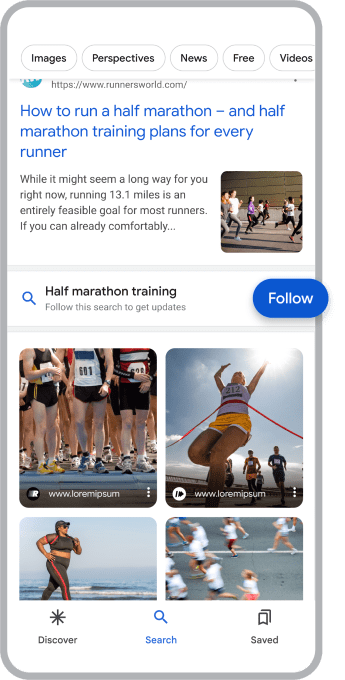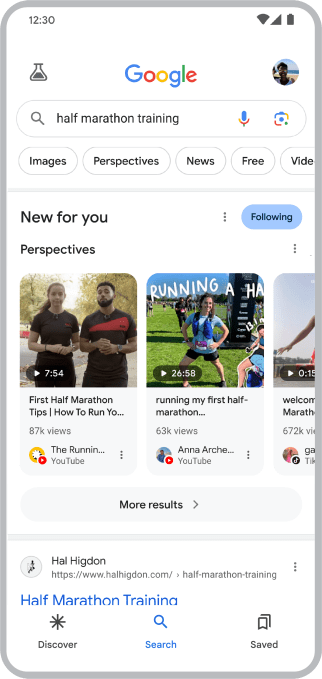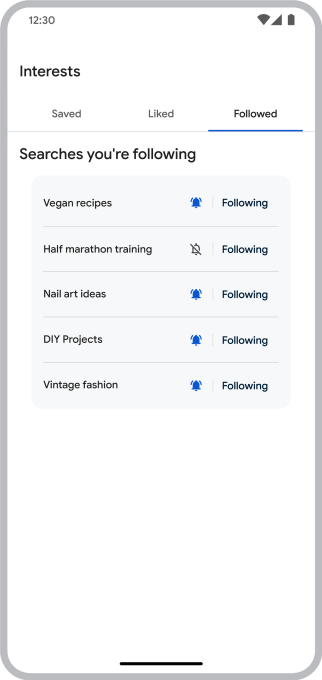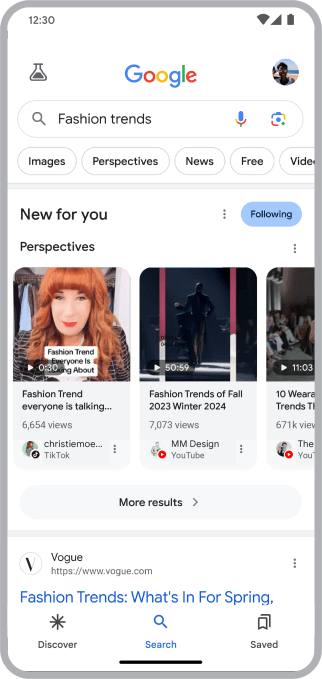There have been a growing number of complaints that Google Search is not as useful as it used to be. In fact, Google execs even admitted that young people are turning to services like TikTok and Instagram for their search needs, or are appending terms like “Reddit” to the end of queries to get more useful results. Today, the company is finally ready to do something about this problem with the launch of two new initiatives. One will see Google personalizing search results for users by allowing them to “follow” topics of interest in addition to surfacing web pages in new ways. Another, more experimental initiative, will turn Google into a collaborative space where users can annotate web pages with their own notes, which are browsable by anyone else on the web.
The moderation headache that one will bring on is hard to imagine, but Google seems to think it will have it under control.

Image Credits: Google
The company explains that it will introduce an opt-in experimental feature in Search Labs that will allow web users in the U.S. and India to add a note to almost any web page which will augment search results with users’ personal experiences and insights. The idea, on its face, sounds a lot like Google is trying to build a version of Reddit on top of Google itself — a move that would allow it to potentially index more human-generated content as Reddit locks down its site to avoid becoming fodder for training AI systems.

Image Credits: Google
Google says some websites won’t offer notes, like those focused on sensitive queries or where reliable information is critical. In addition, it says that every note will go through a classification system that will attempt to determine if the note has content that may violate Google’s policies. If so, it will then flag that note for human review before it’s published live. Users can also report notes for review and when notes are removed, authors can request an appeal if they believe it was pulled by mistake.
All notes and profiles must also meet Google’s Community Guidelines, which define the types of content and behavior that are not allowed, such as child safety, dangerous content, hate speech and spam, among other things, the company says. Webmasters will not be able to opt out of Notes for now.

Image Credits: Google Notes Feed
Web users will be able to browse through others’ notes attached to a site through a notes feed, where the most helpful and relevant notes will be surfaced at the top. Unlike Reddit, which is primarily a text-based forum, these notes can also be visual and engaging, Google says. Users will able to adorn their notes with stickers, images and different visual styles Google imagines use cases for notes that include things like adding tips about improving a recipe you found, or suggestions of what places to explore when traveling, among other things.
Importantly, the notes will live on the open web, meaning they’re indexed by Google’s systems. Over time, if the project is successful, it’s possible the notes could influence Google’s algorithm as well.

Image Credits: Google
“In the days of the early web, links, and how they were treated by search engines like Google, were really foundational to helping people share their perspectives on content on the web,” explains Brad Kellett, senior director of Engineering for Search. “This experiment draws on the premise we’ve seen of people really wanting peer validation and to see what others are saying about a given page. With Notes, we’re exploring giving people a new way to share tips and advice about web content, right on Search — helping people answer their most specialized questions, and discover what’s most useful for them on the web,” he says.
Another change is less radical but is launching publicly, not as an experimental feature.
It will allow users to follow topics of interest by tapping a new “Follow” button found in the search results for a given query. By following a topic, users will be alerted to new and timely information about that query as it comes out. This may sound similar to the age-old Google Alerts system that sends comprehensive email updates with links to web pages that reference a specific keyword, search term or phrase, but the new “Follow” feature is offering a more curated experience — similar to apps like Flipboard or Artifact, which offer personalized views into topics of interest.

Image Credits: Google
Instead of alerting the user to anything that matches the term, Google will instead surface undiscovered and new content for you on the topic both in its search results (within dedicated modules) and through the Google Discover feature — the homepage in its Google app which offers a personalized news feed.
The idea here is that web users will be able to directly signal to Google more about their interests and Google will then deliver them the search results they want, without requiring them to append words like “reddit” to their search queries in order to get personal viewpoints, alongside news and information. It will also allow Google to compile data about users and their interests in the era where third-party cookies are being deprecated in favor of more privacy-focused systems.
The content that’s surfaced in Follow, meanwhile, will be clearly labeled so as not to be confused with organic results, and all the updates it serves will match Google’s existing policies for Discover.

Image Credits: Google
Follow will launch on the Google app on Android and iOS and on the Chrome and Safari browsers on mobile devices.

Image Credits: Google
Google says that 15% of the queries it sees every day are totally new, which is one reason why it wanted to offer a more tailored experience to users. But there are also topics of interest that users search for repeatedly, as they seek out the latest information.
As part of these changes, Google will now allow desktop users to filter for different perspectives that may come from forum sites like Reddit and social media sites like YouTube and TikTok. This feature was launched on mobile in May, and will include information about the creator, like their social media handle, follower count and the popularity of their content.
Google also rolled out ranking improvements that will push more of these first-person perspectives higher in search results, so they’re easier to find.

Image Credits: Google
Google’s changes follow a chorus of complaints about how SEO-optimized and commercial content has destroyed the web and reduced Google’s quality — an issue that came to a head recently after The Verge reported on the people behind the SEO industry, calling them the “people who ruined the internet.”
SEO professionals pushed back on the report, calling it bitter and cynical, but The Verge was not the first nor the only outlet to comment on the declining relevance of Google Search results in recent years. The Atlantic, for example, dubbed Google Search “bloated and overmonetized,” a modern web where it’s “harder now to find answers that feel authoritative or uncompromised.” Ben Thompson of Stratechery also brought up the issue in 2019, commenting on how many screens users now have to scroll through to get to organic search results, and how Amazon was eating Google’s lunch on product search results because it simply offered a better consumer experience. The New Yorker also lamented in 2022 that searching Google today led to an experience of being “awash in information and yet compelled by none of it.”
It remains to be seen whether Google’s experiments around highlighting users’ interests and perspectives from other sources beyond standard websites, or the addition of user-generated content, will actually make Google more useful in the long run. It may be that a new era of search is upon us — one that’s AI-led, not a list of links. Google is tentatively embracing this concept too with its Search Generative Experience that puts an AI chatbot in Google Search, but that’s still a Google Labs test for now. In the meantime, it’s working to improve the default search experience for the way people want to consume information — tailored to them, curated and opinionated.
